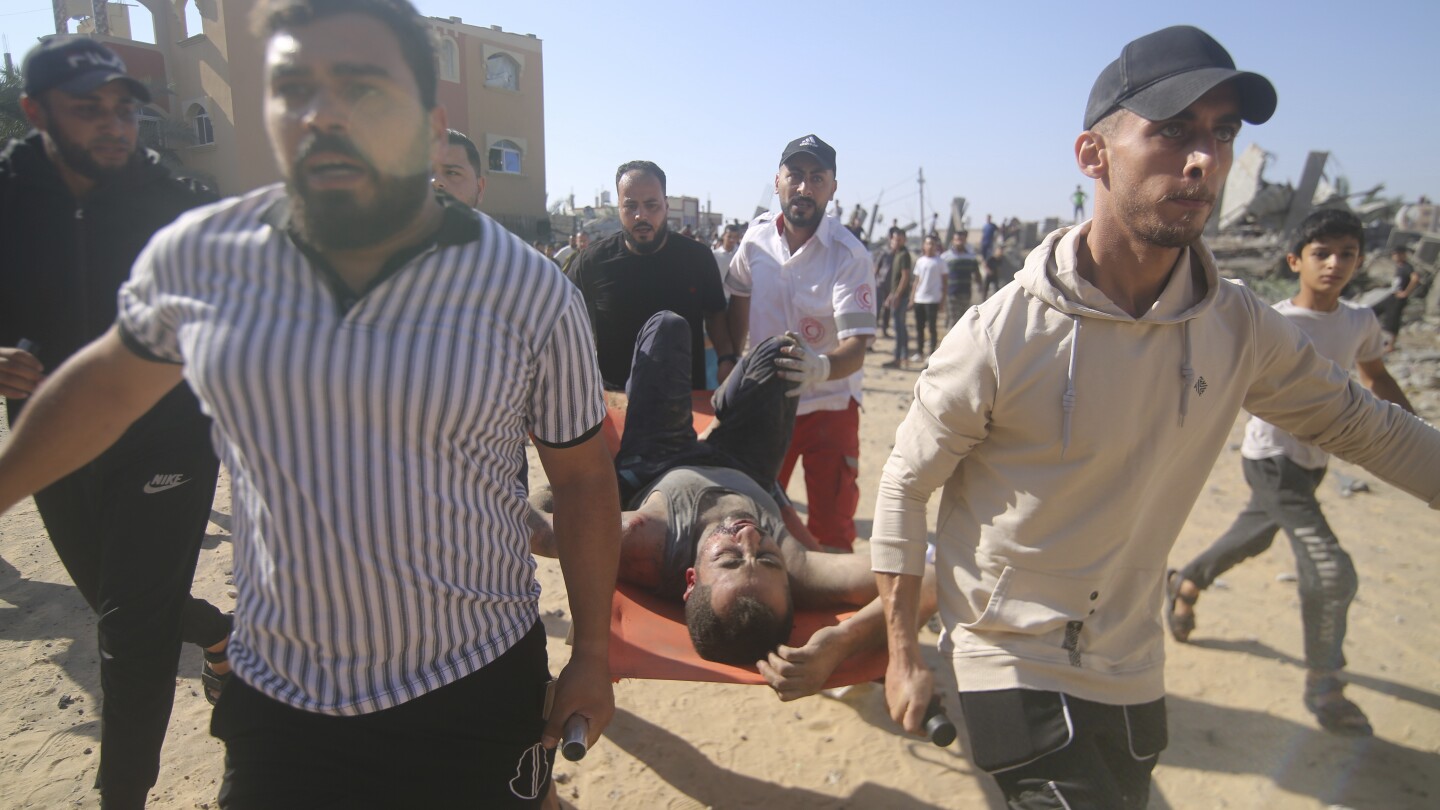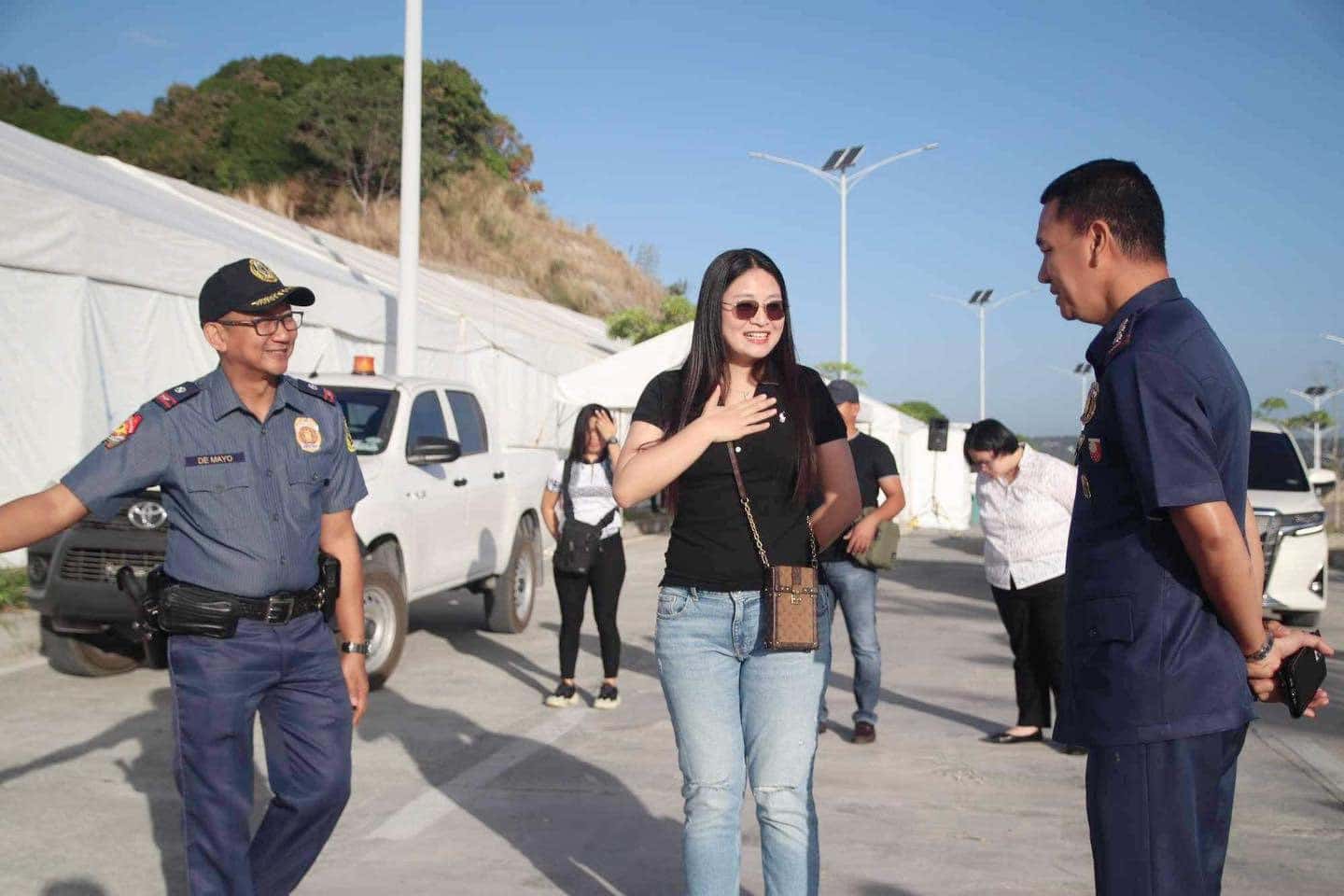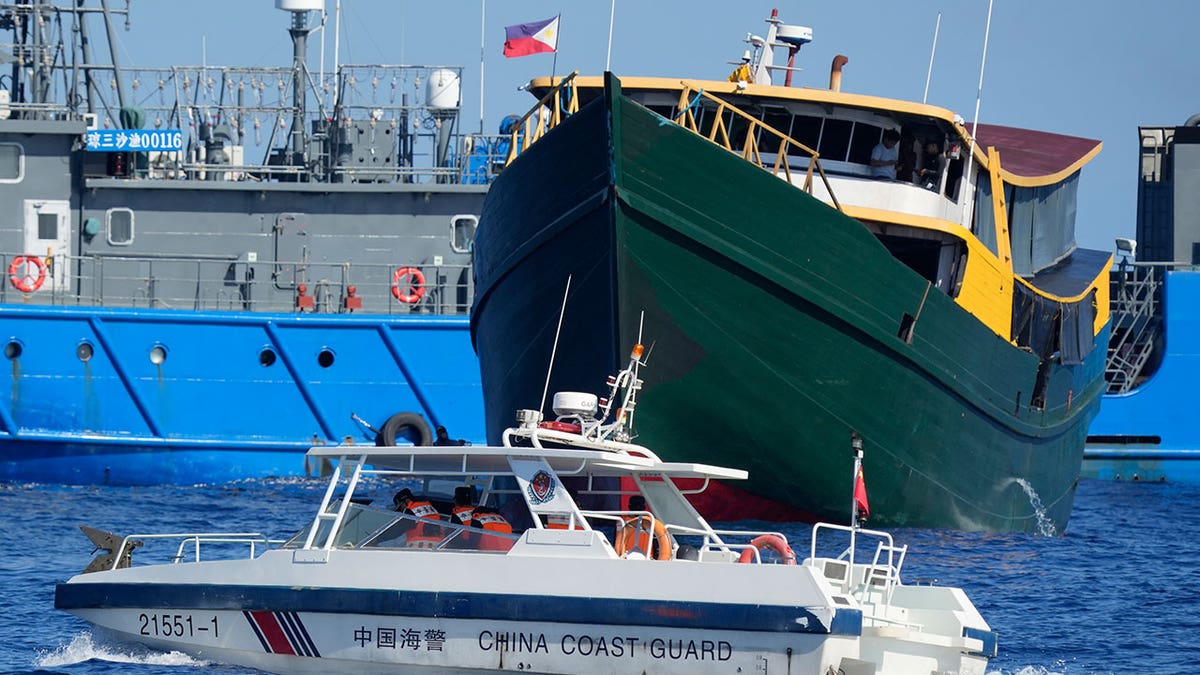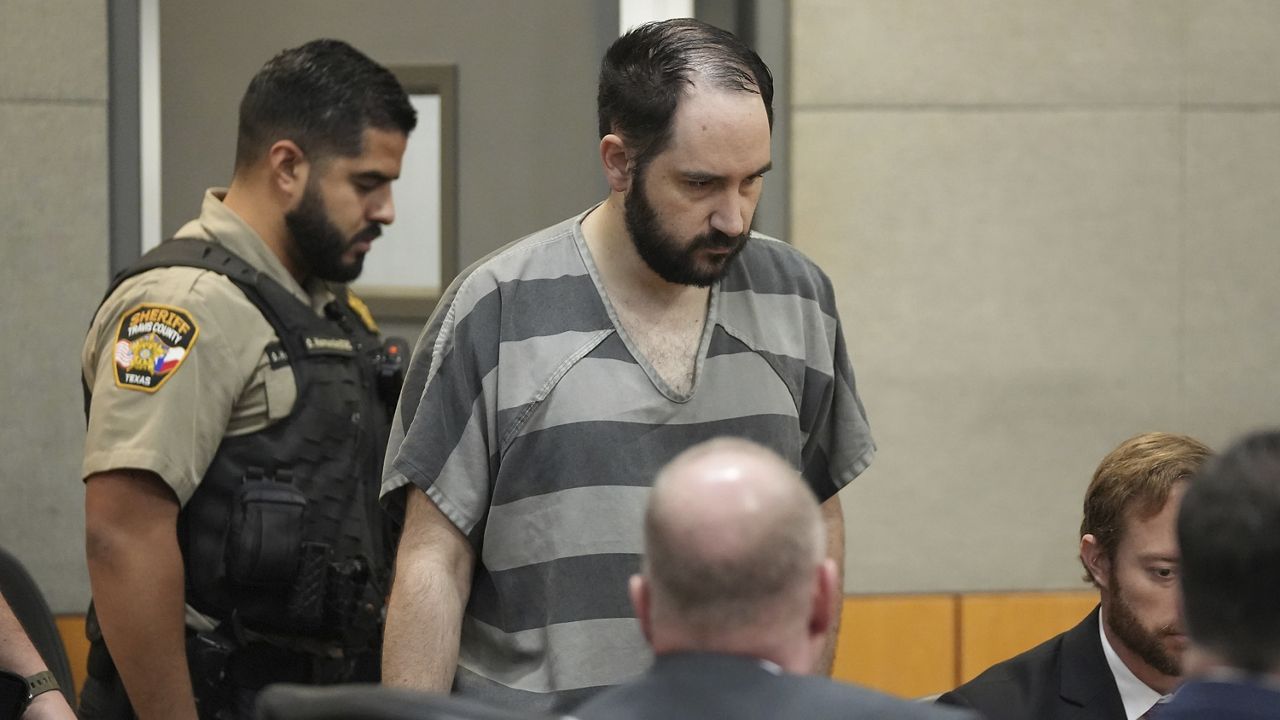World
Palestinians flee northern Gaza after Israel orders mass evacuation with ground attack looming

JERUSALEM (AP) — Palestinians scrambled to flee northern Gaza after Israel’s military ordered about 1 million people to leave for the territory’s south ahead of an expected ground invasion following the surprise attack a week ago by the ruling Hamas militant group — despite warnings from the U.N. that evacuating nearly half of Gaza’s population would be calamitous.
Families in cars, trucks and donkey carts packed with their possessions crowded a main road heading southward from Gaza City as Israeli airstrikes continued to hammer the besieged territory. Hamas’ media office said warplanes struck cars fleeing south, killing more than 70 people.
The Israeli military said its troops conducted temporary raids into Gaza to battle militants and hunted for traces of some 150 people abducted in Hamas’s shocking Oct. 7 assault on Israel.
In urging the evacuation, Israel’s military said it planned to target underground Hamas hideouts around Gaza City. But Palestinians and some Egyptian officials fear that Israel ultimately hopes to push Gaza’s people out through the southern border with Egypt.
The U.N. called on Israel to reverse the unprecedented directive.
Hamas told people to ignore the evacuation order. Families in Gaza faced what they saw as a no-win decision to leave or stay, with no safe ground anywhere. Israeli strikes have leveled entire city blocks, and Gaza has been sealed off from food, water and medical supplies — all under a virtual total power blackout.
“Forget about food, forget about electricity, forget about fuel. The only concern now is just if you’ll make it, if you’re going to live,” said Nebal Farsakh, a spokesperson for the Palestinian Red Crescent in Gaza City, as she broke into heaving sobs.
The Gaza Health Ministry said Friday that roughly 1,900 people have been killed in the territory. The Hamas assault killed more than 1,300 Israelis, most of whom were civilians, and roughly 1,500 Hamas militants were killed during the fighting, the Israeli government said.
ISRAELI TROOPS MAKE FORAY INTO GAZA
Israel’s raids into Gaza Friday was the first word of troops entering the territory since Israel began its round-the-clock bombardment in retaliation for Hamas’ massacre of hundreds of civilians in southern Israel.
A military spokesman said Israeli ground troops left after conducting the raids. The troop movements did not appear to be the beginning of an expected ground invasion.
No decision on a ground offensive has been announced, although Israel has been massing troops along the Gaza border.
An assault into densely populated and impoverished Gaza would likely bring even higher casualties on both sides in brutal house-to-house fighting.
“We will destroy Hamas,” Israeli Prime Minister Benjamin Netanyahu vowed Friday night.
Hamas said Israel’s airstrikes killed 13 hostages. It said the dead included foreigners but did not give their nationalities. Israeli military spokesperson Rear Adm. Daniel Hagari denied the claim.
In Israel, the public remained in shock over the Hamas rampage and frightened by continual rocket fire out of Gaza. Residents are overwhelmingly in favor of a military offensive, and Israeli TV stations have set up special broadcasts with slogans like “together we will win” and “strong together.” Their reports focus heavily on the aftermath of the Hamas attack and stories of heroism and national unity, and they make scant mention of the unfolding crisis in Gaza.
Israeli residents are in shock over the Hamas rampage and frightened by continual rocket fire out of Gaza.
In the occupied West Bank, the Palestinian Health Ministry reported 16 Palestinians were killed Friday, bringing the total of Palestinians killed there to 51. The U.N. says attacks by Israeli settlers have surged there since the Hamas assault.
ISRAEL URGES MASS EVACUATION OF GAZA CIVILIANS
The U.N. said the Israeli military’s call for civilians to move south affects 1.1 million people. If carried out, that would mean the territory’s entire population would have to cram into the southern half of the 40-kilometer (25-mile) strip.
An Israeli spokesperson, Jonathan Conricus, said the military would take “extensive efforts to avoid harming civilians” and that residents would be allowed to return when the war is over.
Israel has long accused Hamas of using Palestinians as human shields. Israeli Defense Minister Yoav Gallant said Israel wanted to separate Hamas militants from the civilian population.
“So those who want to save their life, please go south,” he said at a news conference Friday with U.S. Defense Secretary Lloyd Austin.
U.N. spokesperson Stephane Dujarric said it would be impossible to stage such an evacuation without “devastating humanitarian consequences.”
PALESTINIANS IN GAZA GRAPPLE WITH WHERE TO GO
Hamas’ media office said airstrikes hit cars in three locations as they headed south from Gaza City, killing 70 people. There was no immediate comment from the Israeli military.
Two witnesses reported a strike on fleeing cars near the town of Deir el-Balah, south of the evacuation zone and in the area Israel told people to flee to. Fayza Hamoudi said she and her family were driving from their home in the north when the strike hit some distance ahead on the road and two vehicles burst into flames. A witness from another car on the road gave a similar account.
“Why should we trust that they’re trying to keep us safe?” Hamoudi said, her voice choking. “They are sick.”
Many feared they would not be able to return or would be gradually displaced to Egypt’s Sinai Peninsula.
More than half of the Palestinians in Gaza are descendants of refugees from the 1948 war surrounding Israel’s creation, when hundreds of thousands fled or were expelled from what is now Israel. For many, the evacuation order dredged up fears of a second expulsion. Already, at least 423,000 people — nearly 1 in 5 Gazans — have been forced from their homes by Israeli airstrikes, the U.N. said Thursday.
“Where is the sense of security in Gaza? Is this what Hamas is offering us?” said one resident, Tarek Mraish, standing by an avenue as vehicles flowed by.
The U.N. estimated that tens of thousands had fled homes in the north by Friday night.
HOSPITALS STRUGGLE WITH PATIENTS
Gaza’s Health Ministry said it was impossible to safely transport the wounded from hospitals, which are already struggling with high numbers of dead and injured. “We cannot evacuate hospitals and leave the wounded and sick to die,” spokesperson Ashraf al-Qidra said.
Farsakh, of the Palestinian Red Crescent, said some medics refused to abandon patients and instead called colleagues to say goodbye.
“We have wounded, we have elderly, we have children who are in hospitals,” she said.
Al Awda Hospital struggled to evacuate dozens of patients and staff after the military contacted it and told it to do so by Friday night, said the aid group Doctors Without Borders, which supports the facility. The military extended the deadline to Saturday morning, it said.
The U.N. agency for Palestinian refugees, known as UNRWA, said it would not evacuate its schools, where hundreds of thousands have taken shelter. But it relocated its headquarters to southern Gaza, according to spokesperson Juliette Touma.
“The scale and speed of the unfolding humanitarian crisis is bone-chilling. Gaza is fast becoming a hellhole and is on the brink of collapse,” said Philippe Lazzarini, UNRWA’s commissioner general.
___
Shurafa reported from Gaza City, Gaza Strip, and Lederer from Chicago. Associated Press writers Joseph Krauss in Jerusalem, Samya Kullab in Baghdad, Samy Magdy in Cairo, and Kareem Chehayeb in Beirut contributed to this report.

World
Ukraine investigates civilian injuries, battles rage in Kharkiv region

World
Philippine mayor accused of acting as Chinese asset amid investigation, tensions

A Philippine mayor faces accusations of acting as a Chinese asset amid a growing territorial dispute between the two countries.
“No one knows her. We wonder where she came from. That’s why we are investigating this, together with the Bureau of Immigration, because of the questions about her citizenship,” Philippine President Ferdinand Marcos told reporters this week.
Alice Guo, the 35-year-old mayor of Bamban, has found herself in the middle of a potential scandal over her origins and allegiances. She claimed to have grown up on a pig farm and had raised no concerns prior to a strange discovery made in her town this month, the BBC reported.
Law enforcement discovered that an online casino by the name of Philippine Offshore Gambling Operator (Pogo) in Bamban actually served as a front for a “scam center,” which had close to 700 workers — including over 200 Chinese nationals — who were posing as “online lovers.”
CHINA’S MILITARY MONITORS ROUTE TAKEN BY FILIPINO ACTIVISTS SAILING TOWARD DISPUTED SHOAL
Bamban Mayor Alice Guo speaking with local law enforcement in a photo posted on her official Facebook page earlier this week. (Facebook)
The raid on the site in March rescued all of those workers, who claimed they were forced to work for the owners. The center tried to con victims with a “pig butchering” scam, in which a scammer adopted a fake identity to gain trust and then offered a romantic relationship to manipulate and steal from the victim.
Guo found herself entangled in the incident when it came to light that she owned half the land where Pogo was located.
LAWMAKERS BRAWL AS TAIWAN’S PARLIAMENT DESCENDS INTO CHAOS
The nation’s Senate brought her into a hearing to testify, and she claimed she had sold the land before she ran for mayor two years earlier, along with assets that included a helicopter and a Ford Expedition, both registered under her name but allegedly sold off before her campaign, the South China Morning Press reported.
Other irregularities raised concerns about her status. She only registered with the Commission on Elections to vote in Bamban one year before she ran and won as mayor.

Alice Guo (far right) attends an event for Philippine President Ferdinand Marcos. (Facebook)
She also admitted she only registered her birth certificate with local authorities at the age of 17 and gave few details about her background other than she was born in a house and home-schooled in a family compound where they raised pigs.
Senators accused Guo of providing “opaque” answers to their questions about her background, leading one senator to ask if Guo was a Chinese asset. She fired back that she was “not a coddler, not a protector of Pogos.”
AFTER DOZENS DIE IN FLOODS, INDONESIA SEEDS CLOUDS TO BLOCK RAINFALL
China and the Philippines have found themselves in renewed territorial disputes as Beijing tries to enforce control over waters around the Philippines, leading to clashes between Chinese Coast Guards and Filipino fishermen.

A Chinese coast guard boat moves near the Philippine resupply vessel Unaizah May 4 (in green) after it was hit by a water cannon blast, causing injuries to multiple crew members as they tried to enter the Second Thomas Shoal, locally known as Ayungin Shoal, in the disputed South China Sea March 5, 2024. (AP Photo/Aaron Favila)
Last year saw a series of near clashes between the two coast guards near the Second Thomas Shoal. The Philippine authorities protested China’s use of a water cannon and military-grade lasers.
China established a claim to the Scarborough Shoal in 2012, after which the Philippines formally launched a protest that went before a United Nations-backed tribunal. A 2016 ruling went against China, rejecting Beijing’s claims on “historical grounds,” but Beijing rejected the arbitration and its outcome.
The Associated Press contributed to this report.
World
Sanchez: “I will recognise the Palestinian state next Wednesday”.

Spain’s prime minister said during a rally in Catalonia that he is going to propose the parliament’s official recognition of Palestine as a state on Wednesday, 22 May.
Sanchez defended the decision “out of moral conviction”, considering it “a just cause” and the “only way” to achieve peace and security in the Israeli-Palestinian conflict.
Ireland, Malta and Slovenia are expected to follow suit, and have already agreed to take the first steps in that direction.
In a phone call on Saturday, Taoiseach Simon Harris and Norwegian Prime Minister, Jonas Gahr Store agreed to remain in close consultation in the days ahead. Norway’s parliament adopted a government proposal in November for the country to be prepared to recognise an independent Palestinian state.
Harris and Store said that the deteriorating humanitarian conditions in Gaza underscored the need for an immediate ceasefire and for unhindered access for aid.
Earlier this week, Slovenian Prime Minister Robert Golob said his country would recognise Palestine’s statehood by mid-June.
Sanchez meanwhile criticised the Popular Party for refusing to recognise the Palestinian state and responded to former President Jose Maria Aznar by stating that “Spain will recognise it”.
The prime minister also acknowledged his party’s positive result in the Catalan elections of 12 May and said that Salvador Illa would make a good President of the Generalitat.
Spain would be the 10th European country to recognise the Palestinian State
There are already nine countries in the EU that have recognised Palestine as a state and Spain would be the tenth. On the list are: Bulgaria, Cyprus, Czech Republic, Hungary, Malta, Poland, Romania, Slovakia, Sweden and Slovakia.
Sanchez confirmed on Friday that Spain’s recognition will not be made at Tuesday’s Council of Ministers, as had been suggested.
The prime minister said that his position on the Israel-Hamas conflict is much like his country’s support for Ukraine following Russia’s invasion more than two years ago.
He stressed that Spain demanded ”respect for international law from Russia, and from Israel, for the violence to end, the recognition of two states, and for humanitarian aid to reach Gaza”.
Sanchez added his voice to a chorus of other European leaders and government officials who have said that they could support a two-state solution in the Middle East, as international frustration grows with Israel’s military actions in the Palestinian territories.
French President Emmanuel Macron said last month that it’s not ”taboo” for France to recognise a Palestinian state. British Foreign Minister David Cameron said that the United Kingdom could officially recognise a Palestinian state after a cease-fire in the Israel-Hamas war.
Five months after Hamas militants attacked Israel on 7 October, killing about 1,200 people and taking 250 others hostage, the Israeli military has responded with air and ground assaults that have killed more than 35,386 Palestinians, according to the Gaza Health Ministry.
Why does Spain support recognition of Palestine as a sovereign state?
Spain has been historically close to the Arab world and, as such, the nation is actively trying to push a line more favourable to Palestinian aspirations within the European Union.
In a speech made shortly after his re-election last year, Sanchez promised that his new government’s “first commitment” on foreign policy would be to “work in Europe and Spain to recognise the Palestinian state”.
At the same time, he said he was “on the side of Israel” in the face of “the terrorist attack” of 7 October, but also called on the Jewish state to put an end to the “indiscriminate killing of Palestinians”.
The stance comes at a time when many Western countries are facing criticism in the Arab world for being seemingly too favourable towards Israel.
In 2014, under a conservative government, the Spanish Parliament adopted a resolution calling for the recognition of the Palestinian state, supported by all political parties.
The vote, though, was non-binding and not followed by any action.
In Europe, several countries have taken this step in a more effective way.
They include Sweden, Hungary, Malta and Romania – but none of the main EU member states have done so, meaning that Spain could become a pioneer.
A brief history of Spanish-Arab relations
Geographically close to the Maghreb region of North Africa, Spain turned to Arab countries during the Franco dictatorship which ran from 1939 to 1975 in order to circumvent its isolation in the West.
It was not until 1986, however, that the nation established official relations with Israel.
The relatively late date was a consequence of tensions born from Israel’s opposition to Spain’s entry into the UN at the end of the Second World War, due to its proximity to Nazi Germany.
In 1993, they played a role in the Oslo Accords, through which Israel and the Palestine Liberation Organization mutually recognised each other as part of the peace process.
Overall, though, Spain remains perceived by many as a pro-Arab country.
At the end of October, a mini-diplomatic crisis even broke out with the Israeli embassy after controversial statements by a far-left Spanish minister who spoke of a “planned genocide” in Gaza.
With much of Europe firmly pro-Israel, Isaias Barrenada, a professor at the Complutense University of Madrid, said it will be an uphill battle for Sanchez.
”It is difficult to imagine that Spain has the capacity to reorient the European position,” Barrenada told AFP, but “it can contribute to showing that there are sensitivities within the EU.”
-

 Politics1 week ago
Politics1 week agoOhio AG defends letter warning 'woke' masked anti-Israel protesters they face prison time: 'We have a society'
-

 Finance1 week ago
Finance1 week agoSpring Finance Forum 2024: CRE Financiers Eye Signs of Recovery
-

 World1 week ago
World1 week agoIndia Lok Sabha election 2024 Phase 4: Who votes and what’s at stake?
-

 Politics1 week ago
Politics1 week agoBiden’s decision to pull Israel weapons shipment kept quiet until after Holocaust remembrance address: report
-

 News1 week ago
News1 week agoThe Major Supreme Court Cases of 2024
-

 News1 week ago
News1 week agoTornadoes tear through the southeastern U.S. as storms leave 3 dead
-

 World1 week ago
World1 week agoA look at Chinese investment within Hungary
-

 Politics1 week ago
Politics1 week agoTales from the trail: The blue states Trump eyes to turn red in November


















